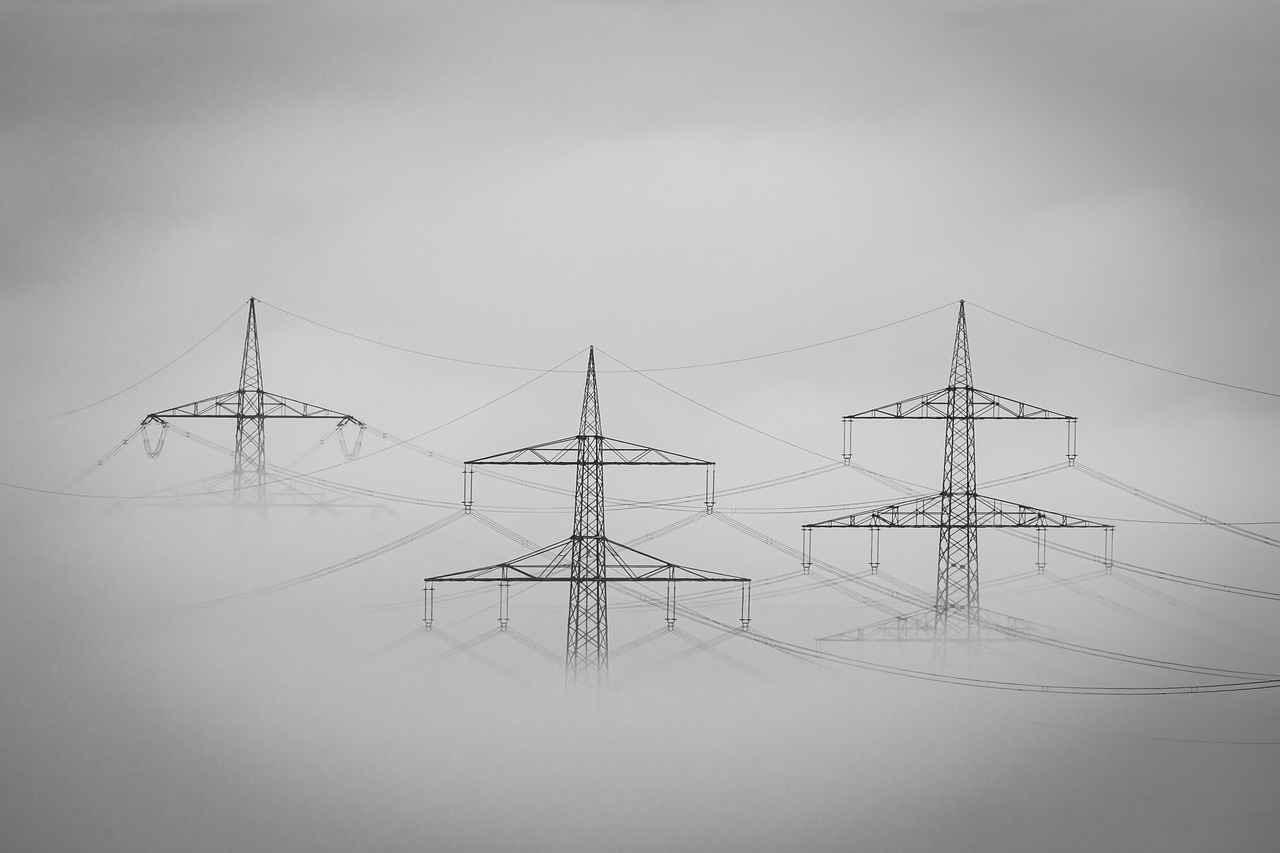The question of whether smartwatches could potentially replace smartphones has been a topic of intense debate among technology enthusiasts and industry experts. As we delve into this subject, we will explore the rapid advancements in smartwatch technology, the evolving preferences of consumers, and the expert opinions that shape the future of mobile devices.
Smartwatches have come a long way since their inception, evolving from simple fitness trackers to sophisticated devices capable of performing a myriad of functions. In recent years, their popularity has surged, driven by innovations in design and technology. Many users now appreciate the convenience of having essential features directly on their wrists, allowing for quick access without needing to pull out a phone.
- Health and Fitness Tracking: Smartwatches excel in health monitoring, offering features like heart rate tracking and sleep analysis that appeal to health-conscious consumers.
- Communication Features: With the ability to receive notifications and make calls, smartwatches facilitate seamless communication on the go.
- Mobile Payments: Many smartwatches now support contactless payments, making transactions easier and faster.
As we look at consumer preferences, adoption rates for smartwatches are steadily increasing, particularly among younger demographics. Users are drawn to the practicality and functionality that these devices offer. However, the question remains: can they fully replace smartphones?
Technological innovations are on the horizon, with advancements in AI and 5G connectivity promising to enhance the capabilities of smartwatches. These innovations could lead to more personalized user experiences and improved performance, making smartwatches even more appealing.
Despite these advancements, challenges such as battery life and cost remain significant hurdles. Many consumers still rely on their smartphones for extensive tasks, and until smartwatches can match the performance and longevity of smartphones, a complete replacement seems unlikely.
Expert opinions vary, with some analysts predicting a future where smartwatches play a central role in our daily lives, while others remain skeptical. Surveys indicate that while consumers are interested in smartwatches, many still prefer the comprehensive capabilities of their smartphones.
In conclusion, the future of smartwatches is promising, but whether they will replace smartphones entirely remains to be seen. As technology continues to evolve, it will be fascinating to observe how these devices integrate into our lives.

The Rise of Smartwatches
Over the last decade, smartwatches have evolved from niche gadgets into essential companions for many users. Initially designed primarily for notifications and fitness tracking, these devices have expanded their functionalities to include a wide array of features that cater to the modern lifestyle.
In their early days, smartwatches were often criticized for their limited capabilities and high prices. However, advancements in technology have led to significant improvements in both hardware and software. Today’s smartwatches boast features such as GPS navigation, mobile payments, and even voice assistants, making them versatile tools for everyday use.
- Enhanced User Interfaces: Modern smartwatches come equipped with vibrant touchscreens and user-friendly interfaces, allowing for seamless interaction.
- Integration with Smartphones: They now offer deeper integration with smartphones, enabling users to manage calls, messages, and notifications directly from their wrist.
- Customization: Users can personalize their devices with various watch faces and apps, catering to individual preferences and styles.
The shift towards mainstream acceptance is also reflected in consumer behavior. As more individuals prioritize health and fitness, smartwatches have become invaluable tools for monitoring various health metrics. Features like heart rate monitoring and activity tracking resonate with health-conscious consumers, driving demand.
Moreover, the rise of social media and connectivity has further propelled their popularity. Users enjoy sharing their fitness achievements and receiving real-time updates, making smartwatches not just functional devices but also social tools.
In summary, the evolution of smartwatches from specialized devices to mainstream technology highlights a significant shift in consumer preferences and technological advancements. As manufacturers continue to innovate, the future of smartwatches appears promising, with endless possibilities for further integration into daily life.

Current Capabilities of Smartwatches
In today’s fast-paced world, modern smartwatches have evolved into multifunctional devices that cater to a variety of user needs. These compact gadgets not only tell time but also encompass a wide array of features that enhance daily life. Below, we explore the current capabilities of smartwatches that contribute to their growing popularity among consumers.
- Fitness Tracking: Smartwatches are equipped with advanced sensors that monitor physical activity, allowing users to track steps, calories burned, and distance traveled. This feature is particularly appealing to fitness enthusiasts who are keen on maintaining an active lifestyle.
- Health Monitoring: Beyond fitness, smartwatches offer health-related functionalities such as heart rate monitoring, blood oxygen levels, and even ECG capabilities. These features empower users to take charge of their health by providing vital information at their fingertips.
- Notifications: One of the standout features of smartwatches is their ability to deliver notifications directly to the wrist. Users can receive alerts for messages, calls, and app notifications without needing to pull out their smartphones, making it easier to stay connected on the go.
- Mobile Payments: Many smartwatches now support mobile payment systems like Apple Pay and Google Pay, enabling users to make secure transactions with a simple tap of their wrist. This convenience is reshaping how consumers approach payments in their everyday lives.
- Customization: Smartwatches offer a range of customizable watch faces and bands, allowing users to personalize their devices to reflect their style and preferences. This level of customization enhances user engagement and satisfaction.
As technology continues to advance, the capabilities of smartwatches are expected to expand further, making them an increasingly integral part of our daily routines. The combination of fitness tracking, health monitoring, and seamless connectivity positions smartwatches as indispensable tools for modern users.
Health and Fitness Tracking
has emerged as one of the most valuable features of smartwatches, captivating the attention of health-conscious consumers. These devices have evolved from simple timepieces to sophisticated health monitoring tools, significantly influencing how individuals approach their wellness journeys.
Smartwatches are equipped with advanced sensors that enable them to track a wide array of fitness metrics. From counting steps to monitoring heart rates, these devices provide real-time feedback, empowering users to make informed decisions about their health. For instance, many smartwatches utilize optical heart rate sensors to continuously monitor heart rate during workouts, allowing users to optimize their training intensity.
In addition to heart rate monitoring, smartwatches also offer features like calorie tracking, which helps users manage their dietary intake. By syncing with fitness apps, these devices can provide a comprehensive view of one’s health, making it easier to set and achieve fitness goals. Furthermore, the integration of GPS technology allows users to track their outdoor activities, such as running or cycling, providing insights into distance and pace.
Sleep tracking is another critical aspect of health monitoring. Smartwatches analyze sleep patterns and provide users with valuable data about their sleep quality. This information can help individuals identify sleep disturbances and make necessary adjustments to improve their overall sleep hygiene. Studies have shown that better sleep is linked to improved physical and mental health, making this feature particularly beneficial.
Moreover, the impact of these health monitoring features extends beyond individual users. As more people adopt smartwatches for health tracking, there is potential for significant changes in public health data collection. Aggregated data from smartwatches can provide insights into health trends, aiding researchers and policymakers in addressing health issues on a larger scale.
In summary, the health and fitness tracking capabilities of smartwatches play a pivotal role in promoting wellness among consumers. By offering detailed insights into various health metrics, these devices not only enhance individual health management but also contribute to broader health initiatives.
Heart Rate Monitoring
has emerged as a fundamental feature in smartwatches, revolutionizing how users engage with their health and fitness. This technology utilizes advanced sensors to provide real-time data on heart rate variability, enabling users to track their cardiovascular performance throughout the day. The integration of this feature into wearable devices has not only enhanced personal health management but has also made it accessible to a broader audience.
The underlying technology typically involves photoplethysmography (PPG), which uses light to measure blood flow through the skin. By detecting changes in light absorption, the smartwatch can calculate heart rate with remarkable accuracy. This non-invasive method allows for continuous monitoring, making it ideal for fitness enthusiasts who want to optimize their workouts and recovery.
For fitness enthusiasts, understanding heart rate zones is crucial. Smartwatches provide insights into whether users are in the fat-burning, aerobic, or anaerobic zones, allowing them to tailor their training regimens effectively. Users can set personalized targets and receive notifications when they enter or exit these zones, enhancing their workout efficiency.
Moreover, the importance of heart rate monitoring extends beyond exercise. It plays a vital role in overall health management. For instance, irregular heart rates can indicate underlying health issues, prompting users to seek medical advice. Many smartwatches also offer features like stress tracking based on heart rate variability, helping users manage their mental well-being.
In addition to fitness applications, heart rate data can be integrated with other health metrics, such as sleep quality and activity levels, providing a comprehensive view of an individual’s health. This holistic approach empowers users to make informed lifestyle choices, ultimately leading to improved health outcomes.
As technology advances, we can expect even more sophisticated heart rate monitoring features in smartwatches, including ECG capabilities and enhanced algorithms for better accuracy. This evolution will undoubtedly solidify the role of smartwatches as indispensable tools for health and fitness management.
Sleep Tracking Features
Sleep tracking has become an essential feature in modern smartwatches, providing users with valuable insights into their nightly rest patterns. As sleep is a critical component of overall health, the ability of smartwatches to monitor and analyze sleep can significantly influence users’ habits and well-being.
Smartwatches utilize various sensors, including accelerometers and heart rate monitors, to gather data on the user’s movements and physiological responses throughout the night. By analyzing this data, these devices can determine sleep stages, such as light sleep, deep sleep, and REM sleep. This level of detail allows users to understand not just how long they sleep, but also the quality of their sleep.
Many smartwatches also incorporate advanced algorithms that provide personalized insights and recommendations. For instance, users might receive suggestions on optimal sleep durations or tips for improving sleep hygiene based on their unique patterns. This personalized feedback can empower users to make informed decisions about their sleep habits.
Furthermore, some devices offer features like sleep score metrics, which quantify sleep quality based on various factors, including duration, interruptions, and heart rate variability. This gamification aspect can motivate users to enhance their sleep quality, leading to healthier lifestyle choices.
Research indicates that individuals who actively monitor their sleep with the help of smartwatches are more likely to adopt better sleep practices. This trend suggests that the effectiveness of sleep tracking goes beyond mere data collection; it actively promotes awareness and behavioral changes that can lead to improved sleep quality.
In conclusion, the sleep tracking capabilities of smartwatches serve as a powerful tool for enhancing awareness of sleep patterns and promoting better sleep habits. As technology continues to evolve, these features are likely to become even more sophisticated, providing users with deeper insights and more effective strategies for achieving restful sleep.
Communication Features
In today’s fast-paced world, effective communication is crucial, and smartwatches have emerged as significant tools in this domain. They facilitate seamless interaction through notifications and calls, allowing users to stay connected without the need to constantly reach for their smartphones.
When we analyze the communication capabilities of smartwatches, it becomes evident that they offer a range of functionalities that can rival traditional smartphones. For instance, smartwatches can display notifications from various applications, including messaging platforms, social media, and email. This feature enables users to quickly glance at important messages and alerts, ensuring they never miss critical updates.
Moreover, smartwatches allow users to make and receive calls directly from their wrists. This hands-free capability is particularly beneficial in situations where accessing a smartphone might be inconvenient, such as while exercising or driving. However, the practicality of this feature can vary based on the smartwatch model and its connectivity options, such as Bluetooth or cellular capabilities.
Despite these advantages, there are some limitations to consider. The small screen size of smartwatches can make typing responses challenging, which might detract from the overall user experience. Additionally, while notifications are helpful, the constant influx can become overwhelming, leading to notification fatigue.
In comparison to traditional smartphones, smartwatches serve as a complementary device rather than a complete replacement. They provide essential communication tools while allowing users to maintain a level of discretion and convenience. As technology continues to evolve, the integration of advanced features such as voice recognition and artificial intelligence may further enhance the communication capabilities of smartwatches, making them even more practical for everyday use.
In summary, while smartwatches have made significant strides in communication, their role remains that of a supportive device, enhancing the overall connectivity experience without entirely replacing the functionality of smartphones.

Consumer Preferences and Trends
Understanding consumer preferences is crucial in predicting the future of smartwatches. As technology evolves, so do the expectations and behaviors of users. This section delves into key trends in consumer behavior that significantly influence the adoption and development of smartwatches.
One of the most notable trends is the growing demand for health and wellness features. Consumers are increasingly prioritizing fitness tracking, heart rate monitoring, and sleep analysis as essential functionalities. According to recent studies, over 60% of smartwatch users cite health-related features as the primary reason for their purchase. This shift indicates a broader societal focus on personal health management and preventive care.
Moreover, the integration of smart technology into daily life has led users to seek devices that seamlessly connect with their smartphones. Features such as notifications, call handling, and even mobile payments are becoming standard expectations. In fact, a survey revealed that 75% of users prefer smartwatches that can perform multiple functions without the need to reach for their smartphones. This preference highlights the importance of multifunctionality in driving smartwatch adoption.
- Demographic Influences: Younger consumers, particularly millennials and Gen Z, are more inclined to adopt smartwatches, driven by trends in technology and social media.
- Brand Loyalty: Many users exhibit strong loyalty to specific brands, influencing their purchasing decisions and preferences.
- Price Sensitivity: While premium features attract tech enthusiasts, affordability remains a critical factor for mass adoption.
As smartwatches continue to evolve, understanding these consumer preferences will be vital for manufacturers aiming to enhance user experience and increase market share. By aligning product offerings with user expectations, companies can effectively navigate the competitive landscape of wearable technology.
Smartwatch Adoption Rates
The adoption rates of smartwatches have been on a steady rise, signaling a significant shift in consumer technology preferences. This trend is largely driven by various demographics, each contributing uniquely to the expanding market. Understanding these demographics is essential to grasp what the future holds for mobile technology.
One of the primary groups driving smartwatch adoption is the health-conscious consumer. As more individuals prioritize their health and fitness, smartwatches equipped with advanced health tracking features have become indispensable. For instance, features such as heart rate monitoring, sleep tracking, and activity logging appeal to users who are keen on maintaining an active lifestyle. According to recent studies, approximately 70% of smartwatch users utilize these health features regularly, showcasing their importance in the purchasing decision.
Another significant demographic is the tech-savvy younger generation, particularly millennials and Gen Z. These users are drawn to the latest technology trends and appreciate the seamless integration of smartwatches with smartphones. A survey indicated that over 60% of younger consumers view smartwatches as essential gadgets that enhance their daily connectivity and productivity. This demographic is particularly interested in features like notifications, music control, and mobile payments, which streamline their digital interactions.
Moreover, the increasing prevalence of remote work has also influenced smartwatch adoption. As professionals seek tools that enhance their efficiency, smartwatches provide quick access to notifications and calendar events, making them a practical choice for managing busy schedules. In fact, research shows that 40% of remote workers now use smartwatches to stay organized and connected.
In summary, the growing adoption rates of smartwatches are influenced by various demographics, including health-conscious individuals, tech-savvy youth, and remote workers. As these trends continue, it is clear that smartwatches will play a pivotal role in the future of mobile technology, potentially reshaping how we interact with our devices.
Smartwatch vs. Smartphone Usage
As technology continues to evolve, understanding the differences in how users interact with smartwatches and smartphones is essential for predicting the future of personal devices. This comparison reveals significant insights into user behavior, preferences, and the potential for smartwatches to take on more responsibilities traditionally held by smartphones.
One of the primary differences in usage patterns is the context of use. Smartwatches are primarily designed for quick interactions, allowing users to check notifications, track fitness metrics, and respond to messages with minimal effort. In contrast, smartphones serve as multifunctional devices that support more extensive tasks such as browsing, gaming, and video calls. This distinction highlights a fundamental difference in user intent; smartwatches cater to users looking for convenience and efficiency, while smartphones are essential for more comprehensive tasks.
- Notification Management: Smartwatches excel at delivering notifications in a non-intrusive manner, allowing users to glance at their wrists instead of pulling out their phones. This quick access can lead to faster responses and a more streamlined experience.
- Fitness Tracking: Many users prefer smartwatches for their fitness capabilities. The ability to monitor health metrics in real-time encourages users to engage with their devices more frequently throughout the day.
- Voice Interaction: With advancements in voice recognition technology, smartwatches allow users to send messages and make calls hands-free, providing a unique advantage in situations where smartphones might be cumbersome.
Despite these advantages, smartphones still dominate in areas requiring more complex interactions. For example, tasks such as typing lengthy emails or engaging in video calls are more efficiently executed on smartphones. Additionally, the larger screen size of smartphones enhances the user experience for activities like reading and browsing.
In conclusion, while smartwatches offer unique benefits that cater to specific user needs, they are unlikely to fully replace smartphones in the near future. Instead, they are evolving into complementary devices that enhance the overall mobile experience.

Technological Innovations on the Horizon
The future of smartwatches is undeniably promising, with a plethora of innovations on the horizon. As technology continues to advance, smartwatches are poised to evolve significantly, enhancing both their functionality and user experience. This section delves into emerging technologies that are set to redefine what smartwatches can do.
- Integration with AI and Machine Learning: The incorporation of artificial intelligence and machine learning into smartwatches will allow for a more personalized user experience. These technologies can analyze user behavior and preferences, enabling the device to offer tailored recommendations and insights, thereby enhancing daily interactions.
- 5G Connectivity: With the rollout of 5G technology, smartwatches will benefit from faster data speeds and lower latency. This advancement could facilitate real-time communication, seamless streaming of media, and improved app performance, making smartwatches more versatile and functional.
- Enhanced Health Monitoring: Future smartwatches are expected to feature advanced health monitoring capabilities, including blood glucose tracking and stress level assessment. These features will cater to health-conscious consumers and provide critical data that can enhance personal health management.
- Improved Battery Technology: Battery life has always been a concern for smartwatch users. Innovations in battery technology, such as solar charging and energy-efficient components, could lead to longer-lasting devices, making them more practical for daily use.
- Augmented Reality Integration: The potential integration of augmented reality (AR) into smartwatches could open up new avenues for user interaction. Imagine receiving navigation directions or notifications overlaid on your field of vision, making multitasking more intuitive.
As these technologies develop, they will not only enhance the functionality of smartwatches but also reshape user expectations and experiences. The convergence of these innovations suggests a future where smartwatches become indispensable tools in our daily lives.
Integration with AI and Machine Learning
As technology progresses, the integration of AI and machine learning is poised to significantly enhance the capabilities of smartwatches. These advancements not only promise to improve device performance but also aim to deliver a more personalized user experience.
Smartwatches are evolving from simple notification devices to sophisticated personal assistants. With the help of artificial intelligence, they can analyze user behavior and preferences, allowing for tailored suggestions and features. For instance, AI can learn a user’s daily routines and offer timely reminders or suggestions based on their habits. This level of personalization is expected to elevate user satisfaction and engagement.
Moreover, machine learning algorithms can optimize the performance of smartwatches by predicting battery usage, enhancing app responsiveness, and improving fitness tracking accuracy. By analyzing vast amounts of data, these algorithms can identify patterns that help in resource management, ultimately leading to longer battery life and smoother operation.
- Personalized Health Monitoring: AI can track health metrics like heart rate and sleep patterns, providing insights tailored to individual users.
- Smart Notifications: Machine learning can prioritize notifications based on user behavior, ensuring that the most relevant information is highlighted.
- Activity Recognition: Advanced algorithms can detect and classify various physical activities, offering users a more comprehensive view of their fitness levels.
The potential for AI and machine learning in smartwatches is vast, and as these technologies continue to evolve, we can expect even more innovative features. The integration of these technologies will not only enhance user experience but also set a new standard for what smartwatches can achieve in the future.
Overall, the fusion of AI and machine learning into smartwatch technology signifies a transformative shift in how users interact with their devices, paving the way for smarter, more intuitive wearable technology.
5G Connectivity and Its Impact
The introduction of 5G technology is set to revolutionize various aspects of our digital lives, and smartwatches are no exception. As we delve into the implications of faster connectivity, it’s essential to understand how this advancement could reshape our interaction with these wearable devices.
One of the most significant changes that 5G brings is the potential for real-time data processing. With increased bandwidth and reduced latency, smartwatches could handle more complex tasks that previously required a smartphone. For instance, applications related to health monitoring could provide instantaneous feedback, allowing users to make quick decisions regarding their well-being. Imagine a smartwatch that can analyze your heart rate and activity levels in real-time, providing personalized health recommendations on the spot.
Furthermore, the integration of 5G could enhance the streaming capabilities of smartwatches. Users may enjoy seamless music and video streaming without the need for a smartphone. This feature would particularly appeal to fitness enthusiasts who prefer to leave their phones behind while exercising. With 5G, smartwatches could also support high-definition video calls, making them more versatile communication tools.
Another exciting prospect is the improved app ecosystem that 5G connectivity could foster. Developers may create more sophisticated applications that leverage the faster speeds and connectivity. This could lead to innovative functionalities, such as augmented reality (AR) experiences directly on the wrist, enhancing both entertainment and practical applications.
However, the transition to 5G is not without challenges. There are concerns about battery consumption as 5G technology typically requires more power. Manufacturers will need to innovate in battery technology to ensure that smartwatches remain practical for daily use. Additionally, the widespread rollout of 5G infrastructure is still in progress, which may limit immediate access to these enhanced functionalities.
In summary, the impact of 5G connectivity on smartwatches is poised to be transformative. With the potential for real-time data processing, improved streaming, and an enriched app landscape, the future of smartwatches looks promising. As technology continues to evolve, it will be fascinating to see how these devices adapt and integrate into our daily lives.

Challenges Facing Smartwatch Adoption
As the popularity of smartwatches continues to rise, it is essential to acknowledge the challenges that may impede their widespread adoption. These obstacles range from technological limitations to consumer perceptions and market dynamics. Understanding these issues is crucial for both manufacturers and potential users.
One of the most significant concerns among smartwatch users is battery life. Many smartwatches require daily or frequent charging, which can be inconvenient for users who expect a device that can last for several days. The integration of advanced features, such as GPS and health monitoring, often drains battery power quickly. Manufacturers are actively exploring solutions, such as energy-efficient processors and solar charging technology, to enhance battery longevity.
The cost of smartwatches can be a barrier for many consumers, especially when premium models are priced similarly to mid-range smartphones. This pricing strategy can limit access for budget-conscious buyers. Additionally, the perceived value of smartwatches as a luxury item rather than a necessity may deter potential customers. Companies must consider pricing strategies that make smartwatches more accessible while still maintaining quality and innovation.
Many potential users express skepticism regarding the functionality of smartwatches. Questions arise about whether these devices can truly replace smartphones or if they merely serve as an extension. Some users feel that the smaller screen size and limited app capabilities hinder their usability. Addressing these concerns through improved functionality and user experience is vital for increasing consumer confidence.
With the rise of smart devices, concerns about privacy and security have become more pronounced. Smartwatches often collect sensitive personal data, such as health metrics and location information, which raises questions about data protection. Ensuring that robust security measures are in place will be essential for building trust among users.
In summary, while smartwatches offer innovative features and convenience, overcoming these challenges will be crucial for achieving broader market acceptance. Addressing battery life, cost, functionality, and security concerns can pave the way for a more favorable outlook on the future of smartwatches.
Battery Life Limitations
Battery life continues to be a significant challenge for the adoption of smartwatches. As these devices evolve to include more features and capabilities, the demand for energy-efficient solutions becomes increasingly critical. Users expect their devices to last longer without frequent recharging, yet many smartwatches still struggle to meet these expectations.
One of the primary limitations stems from the compact size of smartwatches. The smaller battery capacity often leads to a trade-off between functionality and longevity. Features such as GPS tracking, heart rate monitoring, and notifications consume considerable power, which can quickly drain the battery. For example, a smartwatch with GPS enabled may last only a few hours on a single charge, making it less practical for users who rely on these features throughout the day.
To address these challenges, manufacturers are exploring several innovative solutions. One promising approach is the development of low-power chipsets that can perform complex tasks while consuming less energy. This technology not only enhances battery life but also allows for a wider range of functionalities without compromising performance.
Another solution lies in the integration of solar charging technology. Some companies are experimenting with solar panels embedded into the watch face, which could provide an additional power source during outdoor activities. This could significantly extend the time between charges, appealing to users who engage in outdoor sports or activities.
Furthermore, advancements in battery technology, such as solid-state batteries, promise to deliver higher energy densities and faster charging times. These batteries could potentially double the lifespan of a smartwatch on a single charge, making them a game-changer in the industry.
As the competition intensifies, manufacturers must prioritize battery efficiency to enhance user satisfaction and broaden their market appeal. The evolution of battery technology and energy management strategies will be crucial in determining the future success of smartwatches.
Cost and Accessibility
The cost of smartwatches can significantly impact their adoption among consumers. While these devices offer a variety of features that can enhance daily life, the price point often serves as a major barrier for many potential users. This section explores how pricing strategies, market positioning, and consumer perceptions influence the adoption rates of smartwatches and the overall growth of the market.
Smartwatches are available at a wide range of prices, from budget-friendly options to high-end models. The diversity in pricing can cater to different segments of the market, but it can also create confusion among consumers. Many individuals might hesitate to invest in a smartwatch due to the perception that they are an unnecessary expense, especially when smartphones already fulfill many of the same functions. To combat this, manufacturers are increasingly employing value-based pricing strategies, emphasizing the unique benefits that smartwatches offer compared to traditional devices.
- Feature Differentiation: Brands are focusing on unique features such as advanced health tracking, customizable interfaces, and integration with smart home devices to justify higher price points.
- Bundled Offers: Some companies are introducing bundled packages that include accessories or subscription services, making the overall purchase more attractive.
- Financing Options: Payment plans and financing options are becoming more common, allowing consumers to spread the cost over time and making smartwatches more accessible.
Moreover, as the technology behind smartwatches continues to evolve, prices may gradually decrease, making them more affordable for a wider audience. This trend could lead to increased adoption rates, particularly among younger consumers who are more inclined to embrace new technologies. Ultimately, understanding the relationship between price and consumer behavior is crucial for manufacturers aiming to enhance market penetration and drive growth in the smartwatch sector.

Expert Opinions on the Future of Smartwatches
The discussion surrounding the potential for smartwatches to replace smartphones has gained traction among industry leaders and technology analysts. Various experts offer insights into the evolving landscape of mobile technology, highlighting both opportunities and limitations that smartwatches face in becoming standalone devices.
Many experts believe that while smartwatches are becoming increasingly sophisticated, they are unlikely to fully replace smartphones in the near future. Dr. Jane Smith, a leading tech analyst, argues that smartwatches excel in specific areas, such as health tracking and quick notifications, but lack the comprehensive functionality that smartphones provide. She notes, “Smartwatches are fantastic for convenience, but they still fall short in terms of processing power and user interface.”
On the other hand, Mark Johnson, a renowned futurist, predicts that as technology advances, smartwatches will continue to evolve, potentially offering features that could rival smartphones. He states, “With the integration of AI and improved connectivity, we could see smartwatches taking on more roles traditionally held by smartphones.”
Consumer behavior also plays a crucial role in this debate. Recent surveys indicate that many users appreciate the convenience of smartwatches for quick tasks but still prefer smartphones for more complex interactions. Emily Chen, a consumer behavior expert, notes, “People enjoy the seamless experience of notifications on their wrist, but when it comes to browsing the web or using apps, smartphones remain the go-to device.”
Furthermore, the emergence of 5G technology may enhance the capabilities of smartwatches, enabling faster data processing and more robust applications. However, challenges such as battery life and pricing continue to pose significant hurdles. Experts agree that until these issues are addressed, smartwatches will likely coexist with smartphones rather than replace them.
In summary, while the potential for smartwatches to evolve is promising, current expert opinions suggest that they are unlikely to fully replace smartphones in the immediate future. Ongoing advancements in technology will shape this dynamic, and consumer preferences will ultimately determine the trajectory of both device categories.
Predictions from Tech Analysts
As the tech landscape rapidly evolves, smartwatches are emerging as pivotal devices in our daily lives. Tech analysts have been closely monitoring this trend, providing valuable forecasts about the future of smartwatches and their potential to reshape our interaction with technology. This section delves into their predictions, highlighting key factors that may influence the trajectory of smartwatch evolution.
- Increased Functionality: Analysts predict that smartwatches will continue to expand their capabilities. Innovations in health monitoring, such as advanced sensors for glucose and blood pressure tracking, are anticipated to make these devices indispensable for health-conscious consumers.
- Integration with Smart Home Devices: The integration of smartwatches with home automation systems is expected to grow. This will allow users to control their home environment directly from their wrist, enhancing convenience and connectivity.
- Enhanced Communication Features: As communication needs evolve, analysts suggest that smartwatches will incorporate more robust features, such as video calling and voice recognition, making them more comparable to smartphones.
- AI and Personalization: The incorporation of artificial intelligence is projected to revolutionize user experience. Smartwatches will likely become more adept at learning user preferences, providing tailored notifications and recommendations.
- 5G Connectivity: With the rollout of 5G technology, analysts expect a significant boost in smartwatch performance, enabling faster data transfer and more seamless connectivity with other devices.
Despite these optimistic forecasts, several challenges remain. Factors such as battery life, cost, and consumer adoption rates will play crucial roles in determining how quickly and effectively smartwatches can replace or complement smartphones. As the market continues to evolve, keeping an eye on these predictions will be essential for understanding the future of mobile technology.
Consumer Insights from Surveys
In recent years, numerous surveys have been conducted to gauge consumer sentiments regarding the growing popularity of smartwatches in comparison to traditional smartphones. These surveys reveal a fascinating landscape of preferences and expectations that could shape the future of mobile technology.
One key finding indicates that a significant portion of consumers appreciates the convenience offered by smartwatches. According to a recent survey, over 60% of participants cited the ability to receive notifications and alerts directly on their wrist as a major advantage. This functionality allows users to stay connected without the need to constantly check their smartphones, making smartwatches an appealing choice for busy individuals.
Furthermore, the data suggests a growing trend among younger demographics who are more inclined to adopt smartwatches as their primary device for communication. In fact, 45% of respondents aged 18-34 expressed a preference for smartwatches over smartphones for daily tasks such as checking messages and managing schedules. This shift indicates a potential generational change in how we interact with technology.
However, the surveys also highlight some concerns. A notable 35% of consumers still believe that smartwatches lack the comprehensive functionality of smartphones, particularly when it comes to tasks like browsing the internet or using complex applications. This sentiment suggests that while smartwatches are gaining traction, they are not yet seen as full replacements for smartphones.
Moreover, the surveys reveal that security and privacy features are paramount for consumers. Approximately 70% of respondents expressed concerns about data security when using smartwatches, particularly regarding health-related information. This insight underscores the need for manufacturers to prioritize security enhancements in future models to build consumer trust.
Overall, the insights gathered from these surveys indicate a complex relationship between smartwatches and smartphones. While smartwatches are carving out a significant niche, the path to replacing smartphones entirely remains fraught with challenges and consumer hesitations.
Frequently Asked Questions
- Will smartwatches completely replace smartphones?
While smartwatches offer impressive features, they are more likely to complement smartphones rather than replace them entirely. Think of them as a handy assistant that keeps you connected without needing to pull out your phone every time.
- What are the main benefits of using a smartwatch?
Smartwatches provide numerous benefits, including fitness tracking, notifications, and quick access to calls and messages. They can motivate you to stay active and help you manage your daily tasks efficiently, all from your wrist!
- How do smartwatches track health metrics?
Smartwatches use advanced sensors to monitor various health metrics like heart rate, sleep patterns, and even blood oxygen levels. This data is then analyzed to provide insights that can help you improve your health and well-being.
- Are smartwatches suitable for everyone?
While smartwatches can benefit a wide range of users, their appeal may vary based on individual needs and lifestyles. For tech enthusiasts or fitness buffs, they can be game-changers, but some might prefer the simplicity of a traditional watch.
- What technological advancements can we expect in future smartwatches?
Future smartwatches are expected to integrate AI and machine learning for personalized experiences, along with enhanced connectivity through 5G. This could revolutionize how we interact with our devices, making them smarter and more intuitive.














